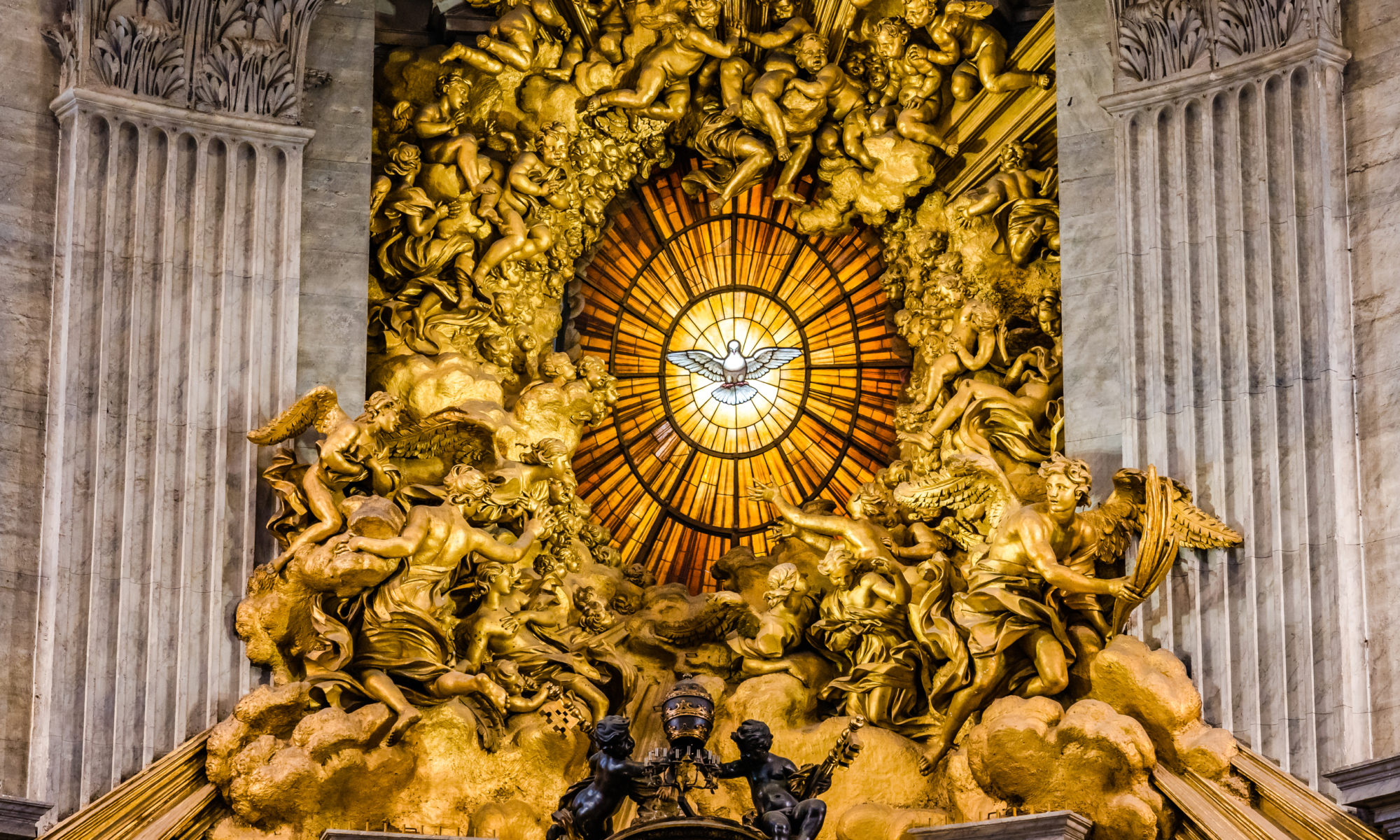The Beginning of the Church and the Tongues of the Holy Spirit
“When the day of Pentecost had come, they were all together in one place. And suddenly a sound came from heaven like the rush of a mighty wind, and it filled all the house where they were sitting. And there appeared to them tongues as of fire, distributed and resting on each one of them. And they were all filled with the Holy Spirit and began to speak in other tongues, as the Spirit gave them utterance” (Acts 2:1–4).
The grace of the Holy Spirit, symbolized by the tongues of fire, enabled them to speak and understand foreign languages in an instant. The languages miraculously spoken by the Apostles were understood by the native speakers of those languages, who were present when the miracle occurred.
After the descent of the Holy Spirit at Pentecost, the custom of speaking in tongues (or “glossolalia” in Greek) continued in some places in the early Church. Saint Paul discusses the topic in I Corinthians 14.
What exactly the phenomenon of glossolalia in the early Church consisted of cannot now be known with certainty. Some believe that the languages spoken in such cases were completely unintelligible except to God and the angels; others think that the speakers in tongues spoke in foreign languages that they had not learned, but which others who heard them could recognize. Perhaps it was sometimes one and sometimes the other.
Seven gifts of the Holy Spirt
According to tradition, there are seven gifts of the Holy Spirit, taken from Isaiah 11:1–3, which reads (in the Douay-Rheims version):
“And there shall come forth a rod out of the root of Jesse, and a flower shall rise up out of his root. And the spirit of the Lord shall rest upon him: the spirit of wisdom, and of understanding, the spirit of counsel, and of fortitude, the spirit of knowledge, and of godliness. And he shall be filled with the spirit of the fear of the Lord.”
So, the seven gifts of the Holy Spirit are:
1. Wisdom
2. Understanding
3. Counsel
4. Fortitude
5. Knowledge
6. Piety
7. Fear of the Lord
Jesse is King David’s father, and all the kings of the Jews were his descendants, including Jesus Christ, the final King of the Jews. “Upon whom the Spirit of the Lord will remain,” means that a descendant of Jesse will receive the blessings of the Holy Spirit.
This prophecy of Isaiah was fulfilled at the baptism of Jesus (Matthew 3:16), when Jesus “saw the Spirit of God descending like a dove, and alighting on him.”
The Holy Spirit and Red Rose Petals
It is a traditional custom on Pentecost to scatter rose petals from the ceiling of the church at Mass, during the singing of the “Veni Sancte Spiritus” between the Epistle and the Gospel. It is not known when this method of celebrating with rose petals began, but it is symbolic of the “tongues of fire” mentioned in the Bible.
The history and dignity of the Church of Sancta Maria ad Martyres (i.e., the Pantheon in Rome) make it a place of graceful masses. At Sancta Maria ad Martyres, people still scatter rose petals from the ceiling every year on the day of Pentecost, because the rose petals are the symbolic color of the Pentecost. The red rose petals falling from the sky are indescribably beautiful. At least once in my life, I would like to attend Mass at Sancta Maria ad Martyres on the Day of Pentecost.
Peace and Freedom Brought by the Holy Spirit: St. Josemaria Escriva
As explained in this article (The secret to spiritual freedom and peace, according to St. Josemaria Escriva –Aleteia), St. Josemaria Escriva, the founder of Opus Dei, taught that we can experience peace and freedom only when we deny ourselves for the love of God and separate ourselves from all selfishness and false security. He says that this experience is a benefit that Christ has won for us and that is given to us by the Holy Spirit.
The author of the article goes on to say, “The next time you sit down to pray, consider what it is that holds you back from this spiritual freedom, and what things need to be ‘denied’ in order to find the peace you long for.”
These are painful words for me to hear. I find that (when I look back on my life) my will, words, and deeds are often not in accordance with God’s will. I find it especially difficult to abandon ‘self.’
The Holy Spirit Blowing where it wills.
“The wind blows where it wills, and you hear the sound of it, but you do not know whence it comes or whither it goes; so it is with every one who is born of the Spirit” (John 3:8).
Whenever I read this verse, I always imagine the wondrous freedom the Holy Spirit gives us. I get the impression that if we are freed from worldly attachments by the grace of the Holy Spirit and are able to live in spiritual freedom, there will be a refreshing feeling like a breeze blowing through the air.
I would like to pray for the grace of the Holy Spirit, so that I can live as a free spirit, free from attachment to worldliness.
May the Week of the Holy Spirit be full of grace.

